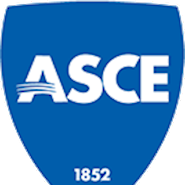Zal Sohrab Tarapore, who oversaw an expansion of India’s ports fostered by and extending the nation’s rapid economic growth in the late 20th century, has died. He was 91.
An expert in hydraulics engineering, Tarapore, Ph.D., M.ASCE, was a former director of the Central Water and Power Research Station in Pune, India, and was founding member of the Indian Society for Hydraulics.
Tarapore’s contributions to Indian water resources span more than six decades. The number of projects in which he made his mark and the range of problems he handled cannot be calculated. His research findings have found their way into peer-reviewed papers, conference proceedings, and technical reports.
He was involved in modeling studies related to almost all major and minor ports spread over India’s vast coastline. Any port infrastructure development ranging from west coast to east coast, from Kandla to Kolkata and Brahmaputra, as well as from north to south running from Ganga-Indus to Kaveri, benefited from Tarapore’s significant contributions.
Tarapore joined CWPRS in 1963 after his first book was published. A Theoretical and Experimental Determination of the Erosion Pattern Caused by Obstructions in an Alluvial Channel: With Particular Reference to Vertical Circular Cylindrical Piers was just digitized in May.
As director, Tarapore engaged in virtually every study on Indian water resources, power, and surface transport. The UN recognized CWPRS as a regional laboratory, which enabled access to the latest field data collection equipment plus education and training for researchers at some of the world’s leading universities. He launched a center to leverage then-emerging developments in computer-oriented modeling.
He served as chief technical adviser for a UN project to strengthening Iranian water resources; adviser to National Water Resources Council, Ethiopia; consultant to the Institute of Hydraulic Research, Hanoi, and for similar institutes in Iraq and the Philippines. He was a member of several Indian engineering-related advisory boards and received several awards for his career contributions.
Tarapore received a civil engineering degree from the University of Edinburgh UK and a doctorate from the University of Minnesota.



